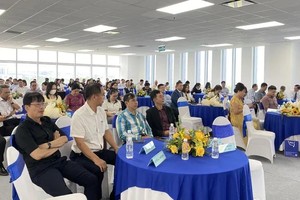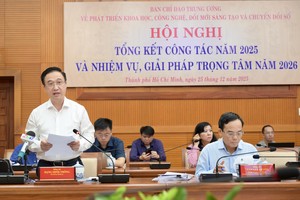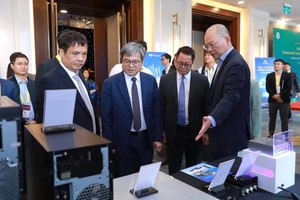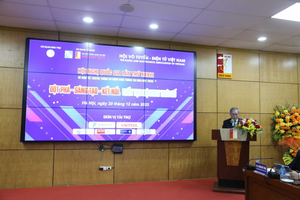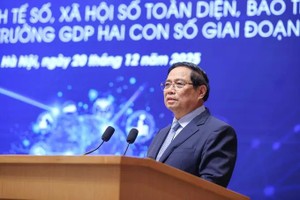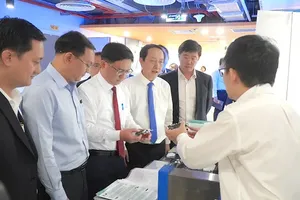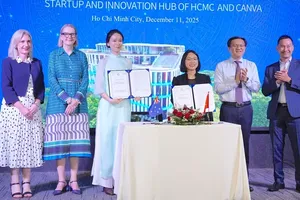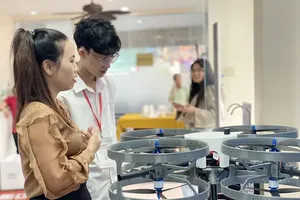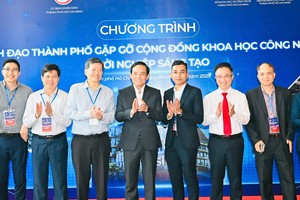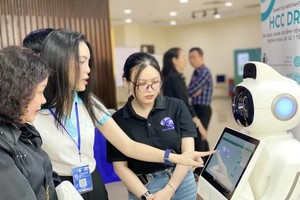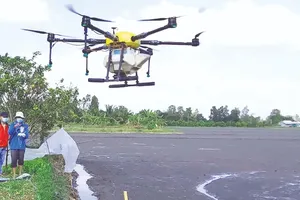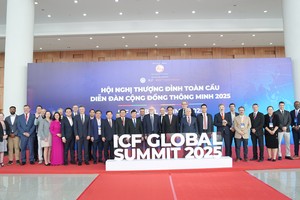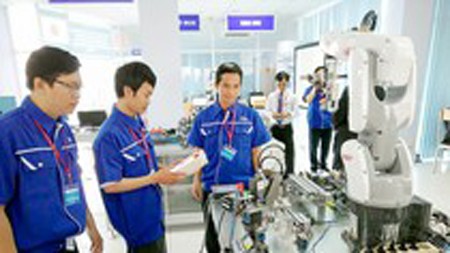
As stated by this new Resolution, Industry 4.0 has brought about several chances as well as challenges for each nation, organization, and individual. Therefore, the Central Party and the Government instruct that related industries and state units promote the implementation of science and technology while enthusiastically improve the capacity to join in this important revolution.
Certain drawbacks in Vietnam include the low level of active participation in Industry 4.0 and limited policies at the moment. In addition, the human resources and current infrastructure are still not able to answer the needs of advanced technologies and the digital transformation process. Along with that, innovation is not truly the driving force for socio-economic development due to the newly born national innovative system and the lack of synchrony.
As a result, many businesses are passive in applying new technologies in their operation, leading to the so small-scale digital economy but the serious state of security crimes.
According to Resolution No.52NQ/TW, the main subjective cause of those problems is the inadequate awareness of the public about Industry 4.0 and the restricted strategic forecast about the effects of science-technology on socio-economic aspects in Vietnam.
Adding to that, government management as to this field cannot keep up with the reality since the cooperation between ministries and industries or between the central unit and local authorities is quite loose.
Understanding these weaknesses, the Politburo instructs that active participation in Industry 4.0 must become the prioritized strategic mission of the whole country in both the short and long term. This action must closely connect to the globalization process. Furthermore, the awareness about the nature of Industry 4.0 must be raised for a stronger determination to innovate thinking and to achieve breakthroughs in socio-economic development.
Opportunities created by Industry 4.0 must be timely caught in order to boost working performance and competitiveness of Vietnam, to effectively manage the society via certain researches and technology transfers, especially in key industries. It is expected that Vietnam will reach the leading position in the region and the whole world in some fields, the Resolution affirms.
It is also directed that negative effects of Industry 4.0 should be actively prevented and coped with so that the national security, social justice, and sustainable development are guaranteed.
The general goal according to Resolution No.52NQ/TW is to take full advantage of all chances brought by Industry 4.0 to boost the growth models and to restructure the current economy in order to make strategic breakthroughs, modernize the country, promote the strong development of digital economy, use science-technology to significantly and sustainably grow, obtain high-level human resources, guarantee social welfare of the public, assure the national security, and protect the natural environment.
Detail goals drawn from the new Resolution is that in 2025, Vietnam should maintain the 3rd position of ASEAN nations in the Global Innovation Index (GII), upgrade the digital infrastructure to reach the developed level in the region, have 100 percent broadband Internet coverage in the nation.
These are to ensure that the digital economy share will account for around 20 percent of the national GDP, with the working performance of over 7 percent per year; the digital transformation process in state and Party units or politburo-socio organizations is basically completed.
In addition, Vietnam should be in the Top-4 leading nations in ASEAN regarding digital government as evaluated by the United Nations, with at least three smart cities in the three key economic regions in the North, Central, and South.
The Resolution also states that in 2030, Vietnam should be in the Top-40 leading nations in the world regarding GII. The 5G mobile network should totally cover the whole country so that the public are able to access low-cost broadband Internet. The digital economy must constitute more than 30 percent of the national GDP, with the working performance increase of about 7.5 percent per year on average. The formation of the digital government should be fully completed. There should be a chain of smart cities in key economic regions in the North, Central, and South, closely connected to the regional and global counterparts.
According to this Resolution, the vision to 2045 is that Vietnam will become one of the smart centers for production and services, one of the leading innovative startup centers in Asia, having high working performance and full capacity to master state-of-the-art technologies in all fields.
To achieve these goals, Resolution No.52 NQ/TW clearly declares that there must be innovative thinking in socio-economic management and improvement in the institution. Creativity and pilots should be welcomed as to practical issues. The attitude of indifference, lack of confidence, or subjectivism should be avoided at all cost.
All forces in the society are promoted for the active and long-term participation of both the inner and outer resources in the digital economy, while the leading role of the Central Party and the Government are to be guaranteed.
Certain policies and guidelines must be adequately implemented, including the unification in awareness and thinking; an increase in the Party’s leading role, the Government’s management, and the participation of Vietnam’s Fatherland Front as well as politburo-socio organizations; a focused development of necessary national infrastructure and national innovative capacity; a priority on human resources growth and key industries; a boost in throughout globalization, digital transformation process among state units.
